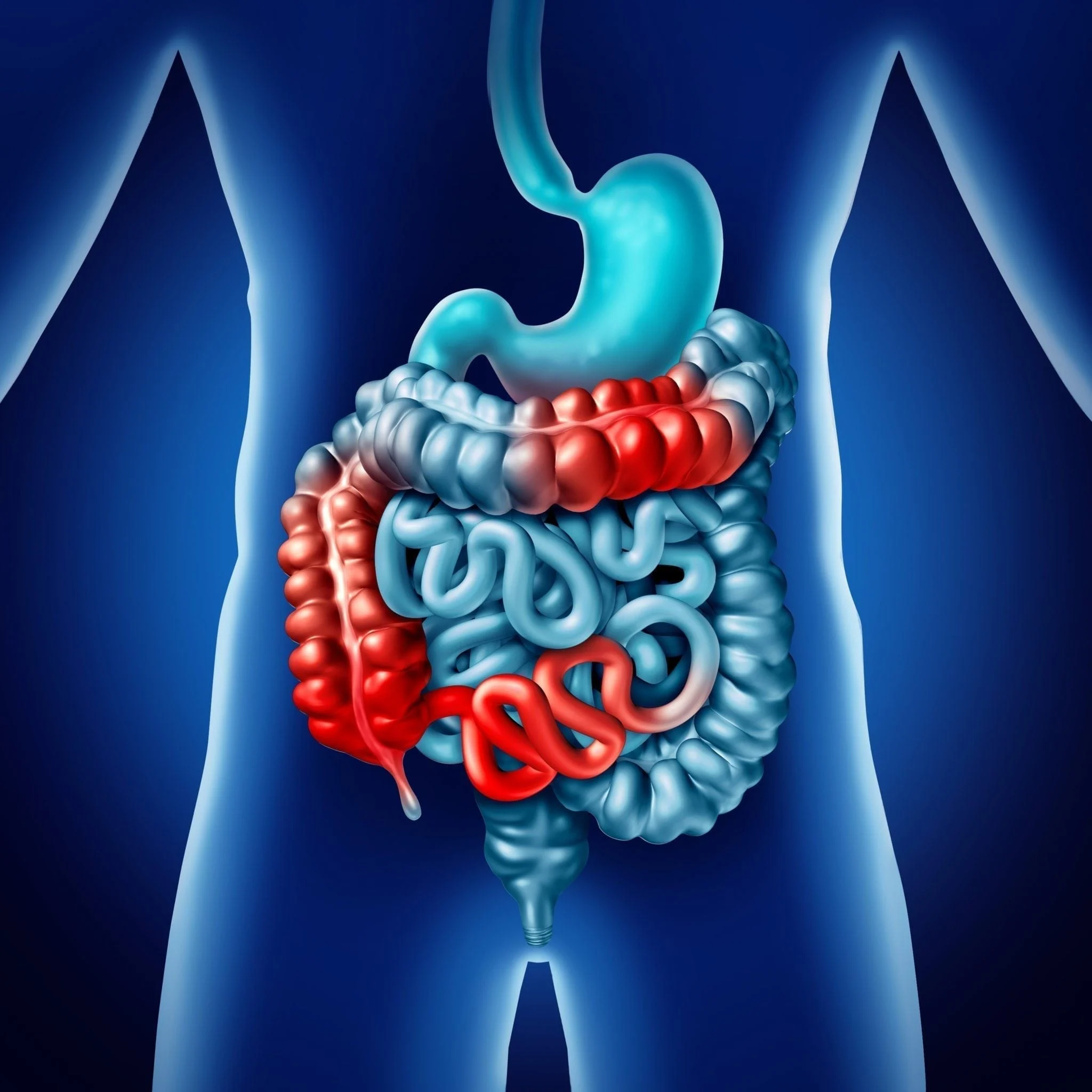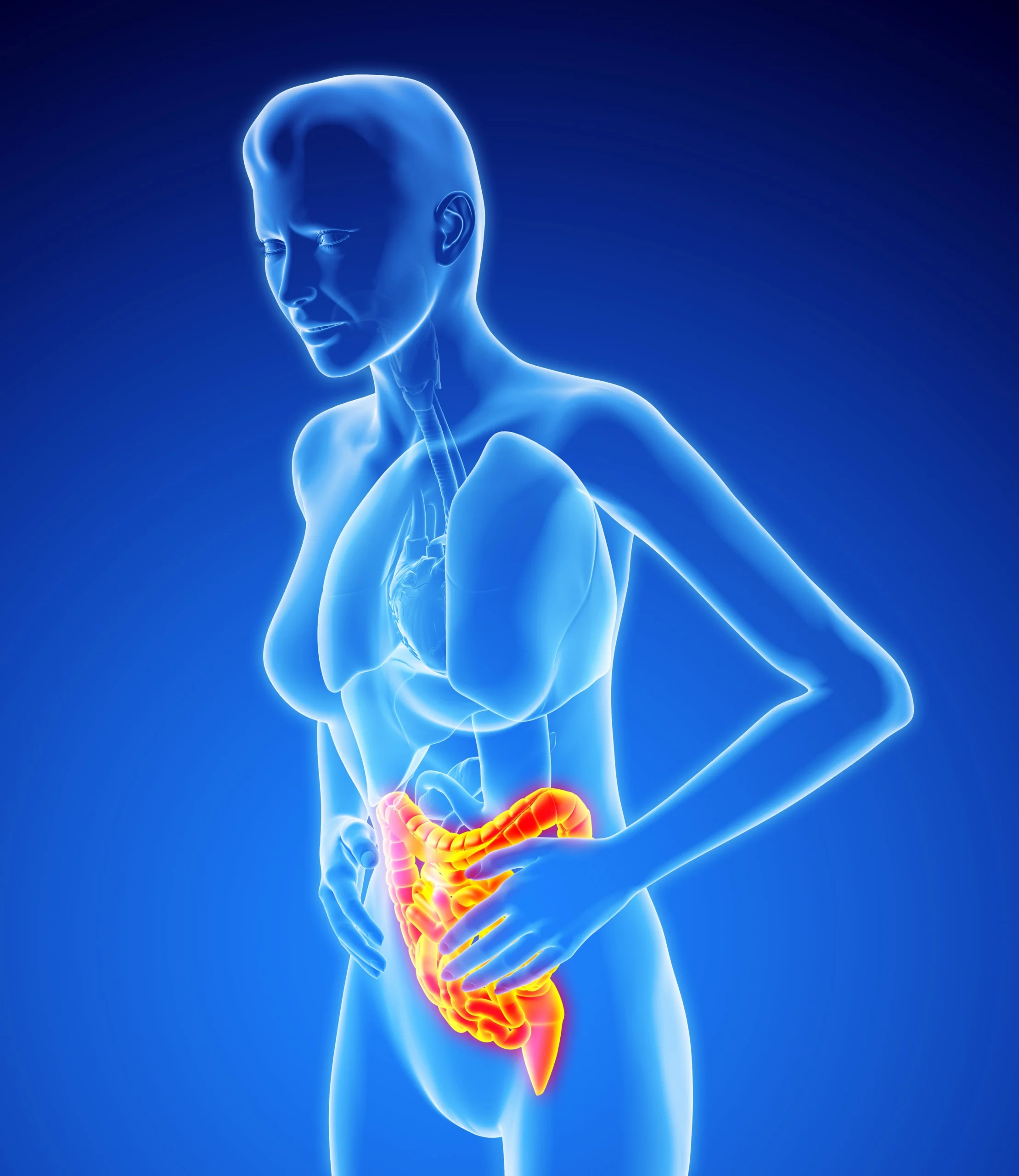CONDITIONS
Ulcerative Colitis and Crohn's Treatment in Dubai

Ulcerative colitis and Crohn’s disease are chronic inflammatory conditions affecting the digestive tract. Both conditions are referred to as inflammatory bowel disease (IBD). IBD can happen to people at any age but is more common in younger adults aged between 15 and 40.

Is IBD the same as IBS?
No – despite having similar names they are completely different conditions! Inflammatory bowel disease (IBD) is characterized by inflammation in the wall of the intestines which causes most of the symptoms. In irritable bowel syndrome (IBS) there is no inflammation – instead, the symptoms of IBS are thought to be due to changes in sensitivity and activity of nerve endings in the bowel wall.
What is the difference between Crohn’s disease and ulcerative colitis?
Both ulcerative colitis and Crohn’s disease are chronic conditions that cause inflammation of the bowel wall, both can cause similar symptoms such as bloody diarrhea or crampy abdominal pain, and similar treatments are used for both diseases. But despite their similarities, there are differences. Ulcerative colitis causes inflammation only in the wall of the rectum and the large intestine (or colon), but Crohn’s disease can affect anywhere in the small and large intestines – and even in the stomach and gullet. In ulcerative colitis, only the inner lining of the colon becomes inflamed – whereas in Crohn’s disease the entire thickness of the bowel wall may become inflamed.
What causes IBD?
Although there are many theories, no one knows exactly what causes ulcerative colitis and Crohn’s disease. We do know that both conditions can sometimes run in families. People who smoke are more likely to develop Crohns disease – and smokers with Crohn’s will usually have more flare-ups and worse symptoms than non-smokers.
What are the symptoms of ulcerative colitis and Crohn’s disease?
The symptoms of IBD differ according to which part of the digestive system is affected. Inflammation in the rectum or the lower part of the colon (caused by either ulcerative colitis or Crohn’s disease) typically causes diarrhea with blood and crampy abdominal pain. Inflammation in the small intestine may cause abdominal pain, abdominal swelling, weight loss, nausea, or vomiting. Tiredness and anemia may also occur in both ulcerative colitis and Crohn’s disease.
Both ulcerative colitis and Crohn’s are chronic relapsing diseases means that the disease course has periods of flare-ups (relapses) with symptoms and periods where the disease causes few or no symptoms (remission). The pattern of relapses and remissions will vary from person to person. Sometimes the disease may go into remission for many years. The unpredictable nature of flare-ups – not knowing when you will get a flare-up – can be one of the most difficult things about these diseases. Because of the unpredictable nature of IBD, patients with ulcerative colitis and Crohn’s disease should have regular checks with a gastroenterologist to help monitor disease activity and adjust treatment as necessary.
How is IBD diagnosed?
As well as taking a careful history and performing an examination, your doctor will probably order blood or stool tests to look for inflammation in the gut. Depending on the site of the suspected inflammation you may need a colonoscopy or an MRI scan to look at the small intestine.
How are ulcerative colitis and Crohn’s disease treated?
There is currently no known cure for either ulcerative colitis or Crohn’s disease. The goals of treatment are to treat flare-ups of disease (to settle symptoms and resolve inflammation) and to stop inflammation from recurring. There are many medicines that can accomplish these twin goals. Surgery was commonly needed in the past for these conditions but fortunately is less often necessary now due to more and more effective medicines becoming available.
Can ulcerative colitis and Crohn’s disease cause cancer?
Long-term inflammation in the wall of the colon can increase the risk of developing colon cancer. Patients with ulcerative colitis or Crohn’s disease affecting the colon should speak with their doctor about having regular checks with colonoscopy once they have had the condition for over 8-10 years.

Dr Neil has over 25 years of experience in diagnosing Crohn’s disease and ulcerative colitis in Dubai. He also has extensive experience in using the best treatments for both treating flare-ups of IBD and keeping the disease in remission.
